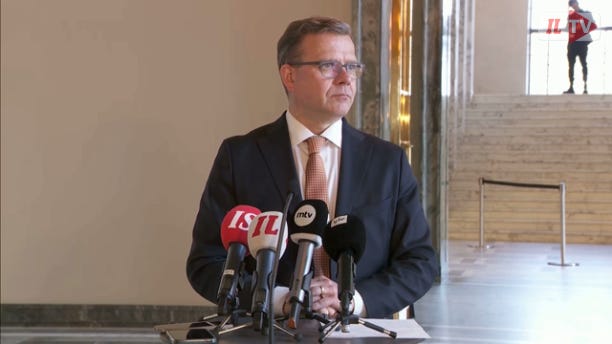The unbearable lightness of fiscal consolidation - the economic program of the future Finnish government
The National Coalition Party (NCP) won the Finnish parliamentary elections with a promise of harsh austerity to curb indebtedness. The NCP’s leader Petteri Orpo intends to announce the parties that will form the upcoming government by May Day. In practice, the options are to form either a right-wing coalition with the Finns Party or a so-called "blue-red" coalition with the Social Democrats (SDP). Both options also require smaller parties to have a majority in the parliament.
Although the Ministery of Finance managed to frame the fiscal consolidation worth of 6 billion euros as the biggest challenge for the next government, the parties did not disclose their adjustment measures in detail during the elections. Hence, the upcoming government’s economic program is still a big mystery.
Several commentators have considered the NCP's strict opposition to tax hikes unrealistic as it increases the share of spending cuts in overall fiscal consolidation. For example Mika Niemelä, the Budget Director of the Ministry of Finance, stated that without tax increases it is actually impossible to achieve 6 billion consolidation without severe cuts to social security, education, and health care – which have mainly been promised not to be cut by all parties in the elections. Additionally, in already uncertain economic situation, excessive spending cuts lead to reduced demand, economic decline, loss of tax revenues and against all election promises an increase of public debt. Hence, as Orpo needs either the Finns Party or the SDP and at least two smaller parties to form majority coalition, it is very likely that fiscal consolidation will also mean tax increases.
Additionally, after the elections the focus has shifted somewhat from traditional spending cuts and tax increases to measures that will promote employment and growth. Orpo has also stated that the fiscal consolidation effects of all policy measures must be verified by the Ministry of Finance. In practice, this means that for those measures which do not have direct budgetary impacts, the Ministry of Finance evaluates their influence over the budget over some period of time.
Kai Mykkänen, the leader of the NCP’s parliamentary group and possibly a forthcoming minister, announced that measures for creating 100,000 “policy-based” jobs is the minimum for the next government. In practice, these policy-based jobs mean decisions that are estimated to lead to the employment of a certain number of people and hence they are also assumed to promote the budget balance. Niemelä has already estimated that the creation of 100,000 jobs could balance the public finances by 1-2 billion euros. Niemelä and Niku Määttänen, the Chairman of the Economic Policy Council, named the reform of the earnings-related unemployment benefits, work-based immigration, and even the prevention of social exclusion as possible measures for creating new jobs.
It is understandable that Orpo wants all policy measures to be verified by the Ministry of Finance. This way he can curb the SDP' consolidation plan built around investments in education and RDI. As these measures have a slower impact on growth and budget balances, the Ministry of Finance can not easily determine their short term fiscal effects. However, the ministry will also find it difficult to calculate impact for the NCP’s economic goals, such as enhancing the scope of local bargaining, easing layoffs, and weakening the right to strike. Will the NCP abandon its longer-term goals if the ministry cannot estimate their impact on public finances? Unlikely, especially if there will be a right wing government. And as the time horizon of fiscal adjustment has already widened after the elections, it is also possible that investments for example to green transition are brought up, especially if there will be blue-red coalition.
Considering how quickly the promise of harsh fiscal austerity has turned into more pragmatic balancing of public financing, there seems to be plenty of leeway left for government negotiations. As both right-wing and blue-red coalitions demand painful compromises from all parties, money can always be thrown at these wounds. Based on Orpo’s softened stance and parties’ electoral manifestos, I would guess that the final fiscal consolidation will include spending cuts of 1.5 billion, tax increases of 1.5 billion, policy-based job decisions of 1.5 billion, and finally investments of 1.5 billion, six billion euros in total as the Ministry of Finance required.
It is certain that the Ministry of Finance has to make the impact assessments of the future government’s fiscal measures. However, it is uncertain whether the ministry is ultimately satisfied with its achievement.




